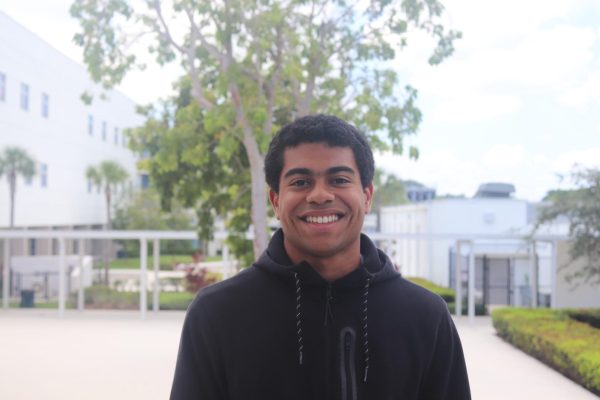How My Black Hispanic Identity Has Shaped My Life
October 15, 2022
As Hispanic Heritage Month comes to an end, I wanted to highlight an underrepresented group within the very diverse Hispanic-American community. According to the Pew Research center, Afro-Latinos account for six million U.S. adults and makeup 12% of the adult Latino population. However, the numbers are inconsistent, as 1.2 million people identified as Hispanic and black in the U.S. census. The discrepancy is due to several factors: some decide to identify as multiracial, some as only Hispanic and others just as Afro-Latino. Whatever the label, Black Hispanics face unique struggles within the community.
In the U.S. my name is Daniel Perodin, but in Spain, my name is Daniel Perodin Garcia. This is because it is common to have both of your parents’ last names in Hispanic cultures. Without this surname in the U.S., most people cannot tell I am Hispanic just by my appearance or my name.
This has led to discrimination, mostly because some people’s perception of what a Hispanic person looks like does not include someone like me. I have had people speak about me in Spanish, assuming that I could not understand, and another person was even shocked that Black people could speak Spanish.
One incident that sums up the situation perfectly, occurred this summer while I was in Spain. I was playing soccer with the neighborhood kids and having a good time. There was a group of mothers at the park, and one of them said “¿El negro habla espanol? El con la camisa blanca,” which translates to, “Does the Black one speak Spanish? The one in the white shirt.”
I was the only Black person at the park, and I was the one wearing the white shirt. I love Spain, the overwhelming majority of people have been nothing but kind. However, ignorant people like that remind me that even though I am a Spanish citizen, have family roots in Spain and Chile and speak the language, my skin color means that some people will not accept me as one of them.
This even reflects in the recent racist remarks the former president of the Los Angeles City Council made. She makes a clear distinction between Latinos and “The Blacks,” disregarding the millions of Afro-Latinos in this country. She also made racist remarks about the Oaxaca indigenous people, further showing how there is a sense of hierarchy within the Latino community, with white Latinos at the top, and Indigenous and Black Latinos at the bottom.
I take pride in my Hispanic heritage. My Chilean abuela and Spanish abuelo have instilled their heritage in me. My mother taught me Spanish as my first language. I also take pride in my Afro-Caribbean heritage, with my Haitian-born father and grandparents speaking French and Creole with me from a young age. My heritage means that I can enjoy my family’s empanadas and riz djon djon on any given day, hang Haitian art on the walls and play Julio Iglesias in the background. Afro-Latinos share a rich cultural background…unapologetically.







